| Listing 1 - 10 of 191 | << page >> |
Sort by
|
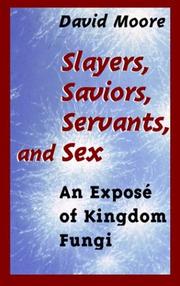
ISBN: 0387951016 0387950982 1461301351 Year: 2001 Publisher: New York : Springer,
Abstract | Keywords | Export | Availability | Bookmark
 Loading...
Loading...Choose an application
- Reference Manager
- EndNote
- RefWorks (Direct export to RefWorks)
This is a book for the general reader about the world of fungi. We should know more about fungi. They have killed us, saved us and served us since before written records began. We have been making bread, brewing ale, and fermenting wine for millennia. Our crops have been at the mercy of fungal diseases since we became farmers, and they still are. Fungal diseases have caused large demographic changes - from the great plague of 'St. Anthony's Fire' of the Middle Ages (caused by a fungal toxin) to the Irish mass migration to the Americas during the famine (caused by a fungal disease of the potato crop). We can also thank fungi for antibiotics, but do we fully appreciate the revolution in life style (and life expectancy) that these taken-for-granted treatments permit? One of the first people to receive penicillin treatment in England in the 1940s was a policeman in Oxford. He died of septicemia when the supplies of the antibiotic ran out after he had been scratched by a rose thorn. Fungi enabled plants (by a mutualistic combination that persists today) to invade the land during the evolution of life on Earth. Higher fungi are almost unique in their ability to decay the chemical components of timber. Without the wood-rotting fungi we would be up to our eyes in dead trees. Fungi give us the opportunity of treating plant diseases and killing specific weeds, as well as being very useful for cleaning up polluted environments and for producing chemicals. In short, this book will show you why it is wise to look again at fungi and appreciate these extraordinary organisms for what they are: a vital component of our lives and of the Earth's ecosystem.
Fungi. --- FUN Fungi & Lichenes --- Fungi --- biotechnology --- lignicolous fungi --- parasitic fungi --- poisonous fungi --- toxicity --- Life sciences. --- Pharmacology. --- Nutrition. --- Agriculture. --- Ecology. --- Forestry. --- Microbiology. --- Life Sciences. --- Pharmacology/Toxicology. --- Nutrition . --- Ecology . --- Balance of nature --- Biology --- Bionomics --- Ecological processes --- Ecological science --- Ecological sciences --- Environment --- Environmental biology --- Oecology --- Environmental sciences --- Population biology --- Alimentation --- Food --- Nutrition --- Health --- Physiology --- Diet --- Dietetics --- Digestion --- Food habits --- Malnutrition --- Drug effects --- Medical pharmacology --- Medical sciences --- Chemicals --- Chemotherapy --- Drugs --- Pharmacy --- Forest land --- Forest lands --- Forest planting --- Forest production --- Forest sciences --- Forestation --- Forested lands --- Forestland --- Forestlands --- Forestry --- Forestry industry --- Forestry sciences --- Land, Forest --- Lands, Forest --- Silviculture --- Sylviculture --- Woodlands --- Woods (Forests) --- Agriculture --- Natural resources --- Afforestation --- Arboriculture --- Logging --- Timber --- Tree crops --- Trees --- Farming --- Husbandry --- Industrial arts --- Life sciences --- Food supply --- Land use, Rural --- Microbial biology --- Microorganisms --- Ecology --- Health aspects --- Physiological effect
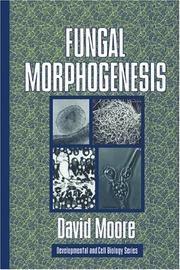
ISBN: 0521552958 Year: 1998 Publisher: Cambridge ; New York, NY : Cambridge University Press,
Abstract | Keywords | Export | Availability | Bookmark
 Loading...
Loading...Choose an application
- Reference Manager
- EndNote
- RefWorks (Direct export to RefWorks)
FUN Fungi & Lichenes --- Fungi --- morphogenesis --- ontogeny
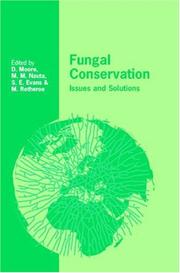
ISBN: 0521803632 Year: 2001 Publisher: Cambridge : Cambridge university press,
Abstract | Keywords | Export | Availability | Bookmark
 Loading...
Loading...Choose an application
- Reference Manager
- EndNote
- RefWorks (Direct export to RefWorks)
Fungi conservation --- FUN Fungi & Lichenes --- Fungi --- conservation --- symposium proceedings
Article
Abstract | Keywords | Export | Availability | Bookmark
 Loading...
Loading...Choose an application
- Reference Manager
- EndNote
- RefWorks (Direct export to RefWorks)
Article
Abstract | Keywords | Export | Availability | Bookmark
 Loading...
Loading...Choose an application
- Reference Manager
- EndNote
- RefWorks (Direct export to RefWorks)
Book
ISBN: 0716717735 9780716717737 Year: 1986 Publisher: New York: Freeman,
Abstract | Keywords | Export | Availability | Bookmark
 Loading...
Loading...Choose an application
- Reference Manager
- EndNote
- RefWorks (Direct export to RefWorks)
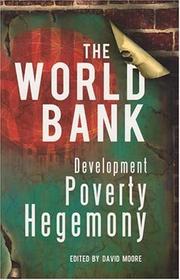
ISBN: 9781869141004 1869141008 Year: 2007 Publisher: Scottsville, South Africa : University of KwaZulu-Natal Press,
Abstract | Keywords | Export | Availability | Bookmark
 Loading...
Loading...Choose an application
- Reference Manager
- EndNote
- RefWorks (Direct export to RefWorks)
Banks and banking, International. --- Economic development. --- Banques internationales --- Développement économique --- World Bank.
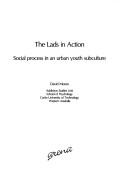
ISBN: 185742204X Year: 1994 Publisher: Aldershot Arena
Abstract | Keywords | Export | Availability | Bookmark
 Loading...
Loading...Choose an application
- Reference Manager
- EndNote
- RefWorks (Direct export to RefWorks)
Book
ISBN: 1280515295 9786610515295 1845443888 Year: 2004 Publisher: Bradford, England : Emerald Group Publishing,
Abstract | Keywords | Export | Availability | Bookmark
 Loading...
Loading...Choose an application
- Reference Manager
- EndNote
- RefWorks (Direct export to RefWorks)
Arguing against a concept of learning as only a formal process occurring in explicitly educational settings like schools, the paper proposes a conception of the workplace as a learning environment focusing on the interaction between the affordances and constraints of the social setting, on the one hand, and the agency and biography of the individual participant, on the other. Workplaces impose certain expectations and norms in the interest of their own continuity and survival, and in the interest of certain participants; but learners also choose to act in certain ways dependent on their own
Book
ISBN: 1281728152 9786611728151 6000021984 Year: 2007 Publisher: Chandni Chowk, Delhi : Global Media,
Abstract | Keywords | Export | Availability | Bookmark
 Loading...
Loading...Choose an application
- Reference Manager
- EndNote
- RefWorks (Direct export to RefWorks)
| Listing 1 - 10 of 191 | << page >> |
Sort by
|

 Search
Search Feedback
Feedback About UniCat
About UniCat  Help
Help News
News